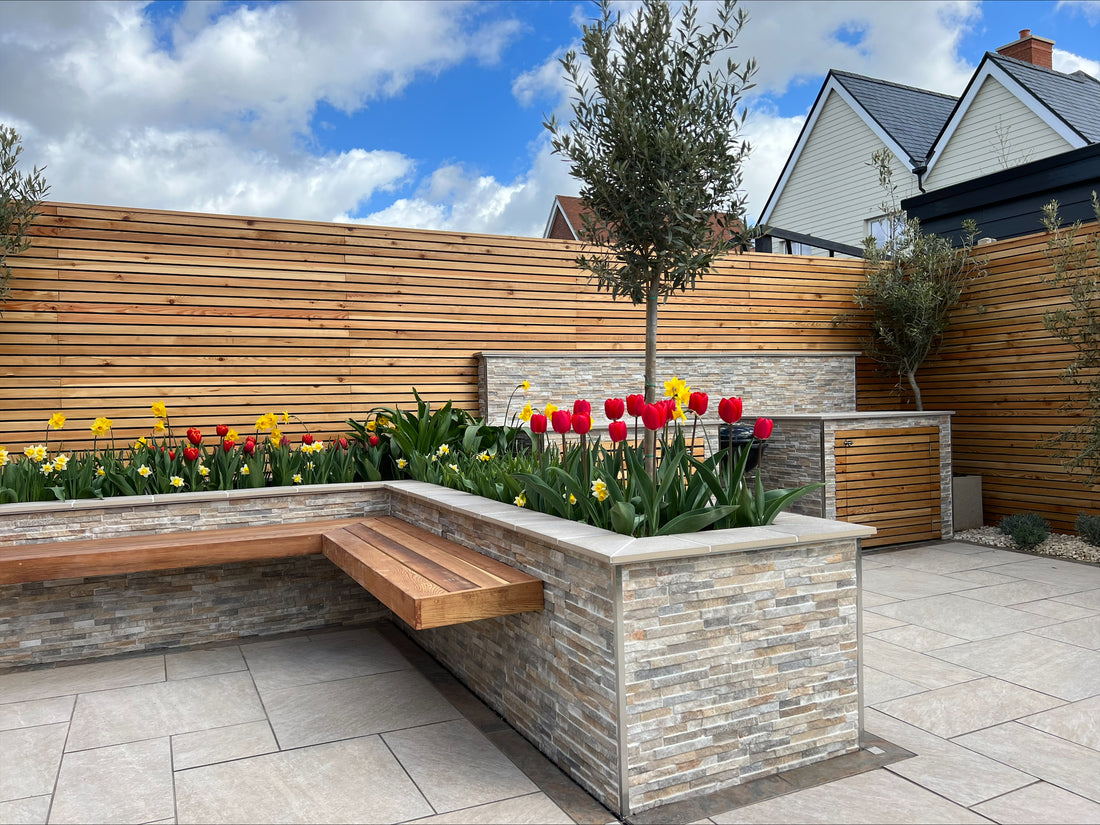There are many softwood types, but which one is right for your project? Whether you’re a DIYer or a professional craftsman, it can be challenging to choose the perfect timber. With so many options for both DIY and building, it can be hard to remember the distinct properties that set each softwood apart.
We’ll take a close look at some of our softwood options, particularly those most commonly chosen for their versatility, such as Southern Yellow Pine, Western Red Cedar and Larch. We’ll compare characteristics and give you a clear idea of when and where to use these different softwood types.
What Is Softwood?
Softwood is a type of wood that comes from mostly coniferous trees, like fir, pine and spruce. These trees grow faster than hardwood trees, which means the timber is generally more readily available and affordable for the public and trades.
As a general rule, softwood is true to its name. It’s often lighter and easier to cut than hardwoods, which makes it ideal for home renovation jobs, furniture making and smaller projects like cabinetry.
Though the name suggests otherwise, some softwoods, such as Southern Yellow Pine, boast impressive strength and durability, rivalling certain hardwoods.
Ultimately, softwood is an excellent option when your project doesn't demand the extreme hardness and strength of hardwood.
Southern Yellow Pine
Southern Yellow Pine (sometimes called SYP) is one of the most popular softwood types available here at E.O. Burton. Here’s why…
- Durability - SYP has impressive strength for a softwood, making it an ideal choice for heavy-duty jobs, such as some structural framing. Its strength comes from its high density, which provides exceptional load-bearing abilities.
- Grain - With a light yellowish brown hue, Southern Yellow Pine offers a straight grain that can darken to a richer colour over time. Because of its distinctive patterning, it's often used in traditional designs where the prominent grain is on full display.
- Affordability - Looking for hardwood qualities at softwood prices? Southern Yellow Pine is less expensive than many hardwood types, making it a budget-friendly option for large projects.
Best Uses?
You’ll often find Southern Yellow Pine used for projects like decking and flooring because it can withstand high traffic without losing its attractive appearance. Its strength makes it ideal for structural beams and framing too, giving you load-bearing capabilities without the big price tag.
Western Red Cedar
Western Red Cedar is naturally beautiful softwood is resistant to decay and provides lightweight versatility. It’s usually chosen for outdoor projects because of its durability, as well as its…
- Appearance - With an eye-catching reddish-brown colouring and straight grain, Western Red Cedar offers an attractive, rich look that fades to a beautiful silver patina over time. It can be used both externally and internally, especially on projects where you need something that looks great and is long-lasting.
- Resistance - Western Red Cedar boasts natural weather resistance, effectively combating insect damage and the elements. This resilience stems from natural oils within the wood that repel moisture, ensuring long-lasting performance.
- Eco-friendliness - Western Red Cedar is often considered the eco-friendly option because it is largely sourced from sustainable forestry. If you’re working on an environmentally friendly build, this could be the wood for you.

Best Uses?
Western Red Cedar is typically used for exterior work since it is lightweight and weather resistant (even more so when finished with appropriate treatments). This softwood is also used for cladding, fencing, decking and patio furniture.
Larch Wood
Unlock the potential of this resilient softwood. While often overlooked, Larch boasts exceptional weather resistance and is a favourite for those in the know, often chosen for...
- Density - Similar to the Southern Yellow Pine, Larch boasts one of the highest densities, giving it impressive resistance to everyday wear and tear. It can even be used for structural purposes, particularly where the timber will be exposed to the elements.
- Workability - Don’t be fooled; just because Larch can be used in similar applications as hardwood, it doesn’t mean it is as challenging to work with. This softwood can be nailed, screwed and cut on-site, although it’s a good idea to pre-drill holes to prevent splitting.
- Aesthetics - With a warm reddish hue much like Western Red Cedar, Larch’s straight, tight grain adds an aesthetic appeal along with its function. This means it is typically used for situations where you need both strength and an excellent final look.
Best Uses?
This wood isn’t as popular as the other softwood types we’ve mentioned, but it is hugely versatile for outdoor applications. If your project involves decking, flooring, cladding, fencing, or even boatbuilding, it's the right choice.

Which Softwood Type Should You Choose?
This choice comes down to the needs of your job, whether DIY or commercial. Simply consider what you’re going to ask of the softwood types you’re comparing:
Reliable strength - How strong do you need your softwood to be? Fencing and cladding can benefit from being more lightweight, but structural framing requires sturdier softwood varieties like Southern Yellow Pine.
Natural beauty - If your job requires a stunning appearance and all-around strength, then an aesthetically appealing and durable wood like Western Red Cedar should be your go-to.
Outdoor safe - Looking for a dense, tough wood that can hold its own against the elements? A moisture-resistant wood like Larch wood is ideal for jobs such as decking, cladding and other exterior applications.
The Right Softwood For Your Project…
The best softwood type is ultimately going to be the one that suits your project’s requirements. This depends on strength, durability, appearance and price. By knowing the strengths and weaknesses of some of these popular softwood types, you can better select the perfect timber: for your build.
Want some expert advice on which type of wood to choose for your job? Get in touch with E.O. Burton today.


